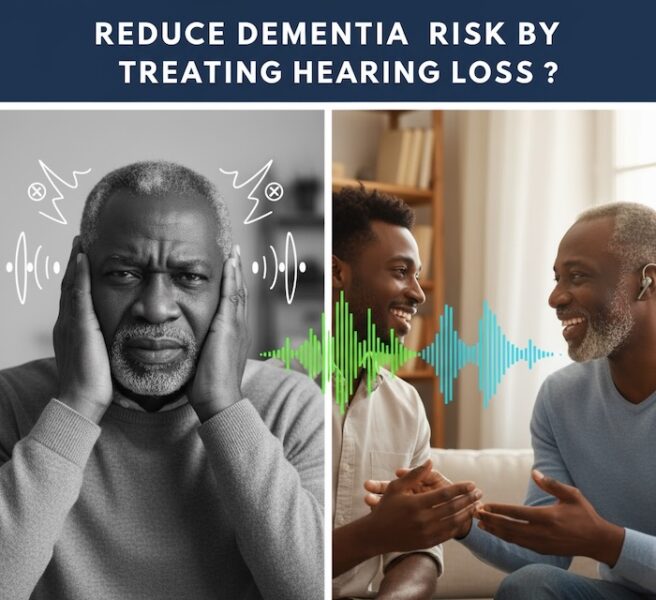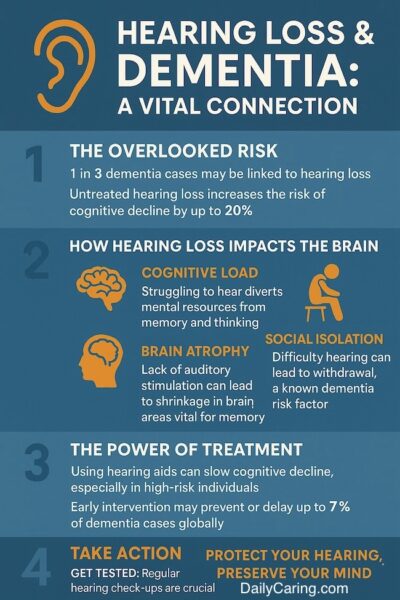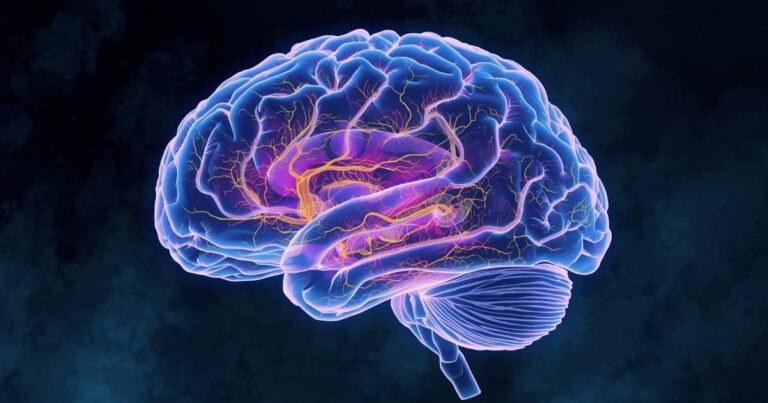Could treating hearing loss be one of the most overlooked ways to protect brain health? Emerging research reveals a surprising connection between unaddressed hearing impairment and increased dementia risk in older adults. The good news? Improving hearing may help maintain cognitive function and delay the onset of memory decline.

In this article, we examine the compelling science behind this phenomenon and share practical steps seniors and caregivers can take to address hearing loss. These steps could potentially reduce the risk of dementia while improving quality of life today. Simple interventions could make a profound difference in safeguarding your loved one’s mental sharpness for years.
1 in 4 Seniors Experience Hearing Loss
Hearing loss can’t be seen, so you might think changes in your older adult’s behavior are caused by disinterest, confusion, or personality changes.
And sometimes hearing loss can be mistaken for signs of dementia.
However, hearing loss is the third most common physical condition, after arthritis and heart disease.
Nearly 1 in 4 people aged 65 – 74 and half of the people aged 75+ have disabling hearing loss.
Unfortunately, only 20% of people who could benefit from hearing treatment seek help. Most put it off until they can’t communicate, even in the best listening situations.
We explain why untreated hearing loss is a serious issue and share three reasons why hearing loss increases the risk of dementia.

Treating Hearing Loss is Linked to Improved Health
Multiple studies have found links between hearing loss, cognitive decline, and dementia.
However, something as simple as a hearing aid or hearing amplifier could greatly influence healthy brain function.
Over 6 years, cognitive abilities (such as memory and concentration) in people with hearing loss declined 30-40% faster than in those with normal hearing.
Hearing loss is also linked to increased stress, depression, bad moods, and increased hospitalization and fall risks.
That means untreated hearing loss is a bigger problem than having the TV on too loud or shouting during everyday conversations.

3 Reasons Hearing Loss Could Raise Dementia Risk
There are three primary theories explaining why hearing loss may increase the risk of cognitive decline and dementia.
1. Cognitive Load
If the brain is constantly coping with and trying to make sense of difficult-to-hear sounds, it’s busy processing them and cannot devote as much energy to tasks like memory and thinking.
2. Brain Atrophy
Hearing impairment may accelerate atrophy in parts of the brain that process sound.
Those parts of the brain also play a role in memory and sensory perception. They’ve also been shown to be involved in the early stages of mild cognitive impairment and Alzheimer’s disease.
3. Social Isolation
People who have trouble hearing often withdraw from social activities because communicating with others is challenging.
Many studies have found that decreased social engagement and loneliness are risk factors for cognitive decline.
Final Thoughts About Hearing Loss and Dementia
Addressing hearing loss is far more than a simple quality-of-life improvement, it’s a powerful, proactive strategy for protecting brain health. By taking the step to treat hearing loss, you are not just helping your loved one stay connected to conversations and the world around them; you are actively reducing a significant and modifiable risk factor for cognitive decline.
This is one of the most impactful, evidence-based actions you can take to invest in their long-term well-being. Encourage a hearing test and explore available solutions. It’s a decision that supports a sharper mind, richer connections, and a more vibrant future.
Recommended for you:
- Avoid Conflict When Helping Seniors at Doctor’s Appointments
- Prevent Falls with 5 Warning Signs of Mobility Issues in Seniors
- 5 Questions to Ask Doctors About Tests and Treatments for Seniors
About the Author

Connie is the founder of DailyCaring.com and was a hands-on caregiver for her grandmother for 20 years. (Grandma made it to 101 years old!) She knows how challenging, overwhelming, and all-consuming caring for an older adult can be. She also understands the importance of support, especially in the form of practical solutions, valuable resources, and self-care tips.














have a lot of trouble with computer- very old-like me